What is JICA's DPI/DPG Development?
In recent years, attention has grown globally around the role of Digital Public Infrastructure (DPI) and Digital Public Goods (DPG) in delivering inclusive and equitable digital services. DPI and DPG refer to interoperable, open, scalable, and trusted digital platforms and tools that enable sustainable development. DPI typically comprises digital identity, digital payments, and data exchange platforms. Among these, JICA places particular emphasis on the development of data exchange platforms. DPGs, including open-source software, open standards, and open data, serve as reusable digital resources and represent the core components of DPI. They are vital for bridging the digital divide and achieving the Sustainable Development Goals (SDGs) in developing countries.
With decades of experience in supporting infrastructure development and social services, JICA brings deep institutional knowledge, strong local networks, and a wealth of public-sector data. These assets are essential to developing effective data-sharing platforms and adopting DPI and DPG solutions.
In many developing countries, data is held separately by government agencies, public service providers, private companies, and academic institutions, with limited collaboration. As a result, valuable data often goes undiscovered and underutilized, which creates challenges such as insufficient evidence for policymaking, and limited opportunities for public data use by private-sector innovators and researchers. To address this, JICA is promoting data exchange platforms that enable cross-sectoral data interoperability and collaboration by introducing more effective and ethical use of data across institutions. These platforms facilitate more efficient service delivery, enable evidence-based policy design, and foster the creation of new business models and public value. JICA also aims to generate sustained, cross-border impact by open-sourcing core DPI functions and components as DPGs, enabling horizontal deployment across sectors and countries.
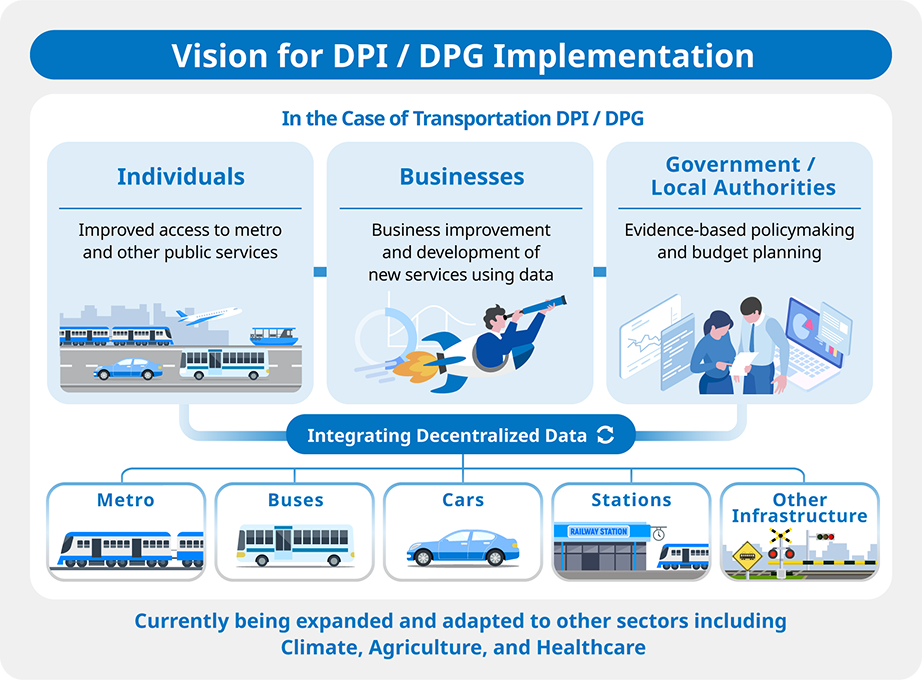
How JICA Develops and Scales DPI/DPG
JICA currently focuses on developing DPI and DPG systems across key domains, including transport, climate change, agriculture, public administration, healthcare, energy, and smart cities - with plans to expand further.
Projects typically begin with a landscape assessment to identify existing data assets and gaps. Based on this, JICA identifies the necessary functions of the data platform and clarifies the stakeholders’ roles. Using open-source technologies where appropriate, small-scale pilots are launched to test data integration and real-world use cases. Once the benefits are validated, JICA works to expand both the datasets and the use cases while engaging a broad range of stakeholders - including governments, private companies, academia, and civil society - to build a robust data-driven innovation ecosystem. These efforts aim to improve public service delivery, advance evidence-based decision-making, and enable the deployment of innovative digital solutions that contribute to inclusive social and economic development.
Driving Multi-Stakeholder Impact and Reinforcing Japan’s Leadership as a Donor Country
JICA’s DPI/DPG initiatives are already generating cross-sectoral impact and reinforcing Japan’s position as a global leader in digital cooperation. In India, for example, JICA is supporting the development and deployment of a data exchange platform for urban mobility, known as the "Transport Stack." The platform enables real-time monitoring of public buses, integrated route and transfer planning using multimodal data, and open APIs that startups use to create new mobility services. It is also being used for policy formulation on traffic congestion, and academic research on urban disaster resilience. Core components such as route search algorithms and transit data models are being open-sourced as DPGs for broader reuse.
In Bhutan, JICA is implementing a technical cooperation project that links four major national health data repositories (4 Banks) with the country's digital ID system to improve healthcare access and integration. In Ethiopia, JICA is advancing use cases for an agricultural data exchange platform ("AgriStack") to enhance productivity and coordination. These are just a few examples of how JICA is developing DPI/DPG projects across regions and sectors.
These efforts in the DPI/DPG domain are widely recognized by the international community as cutting-edge contributions within the digital development landscape. Going forward, JICA will continue to expand and share these models across sectors and geographies, contributing to the global knowledge base in international development and helping build inclusive, data-driven societies. For more information, please refer to the links below.





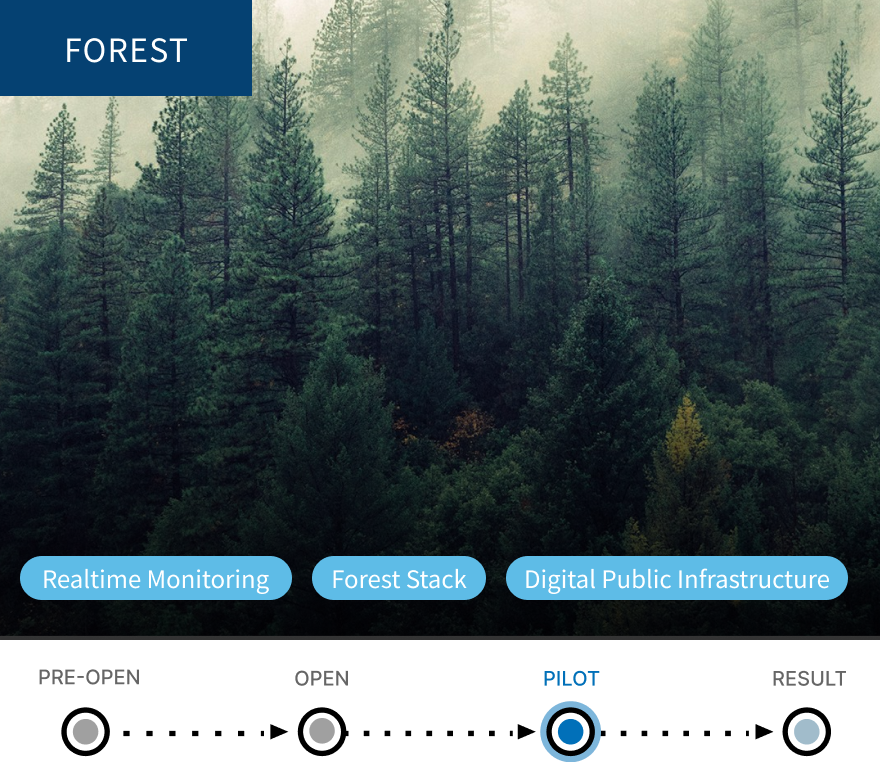
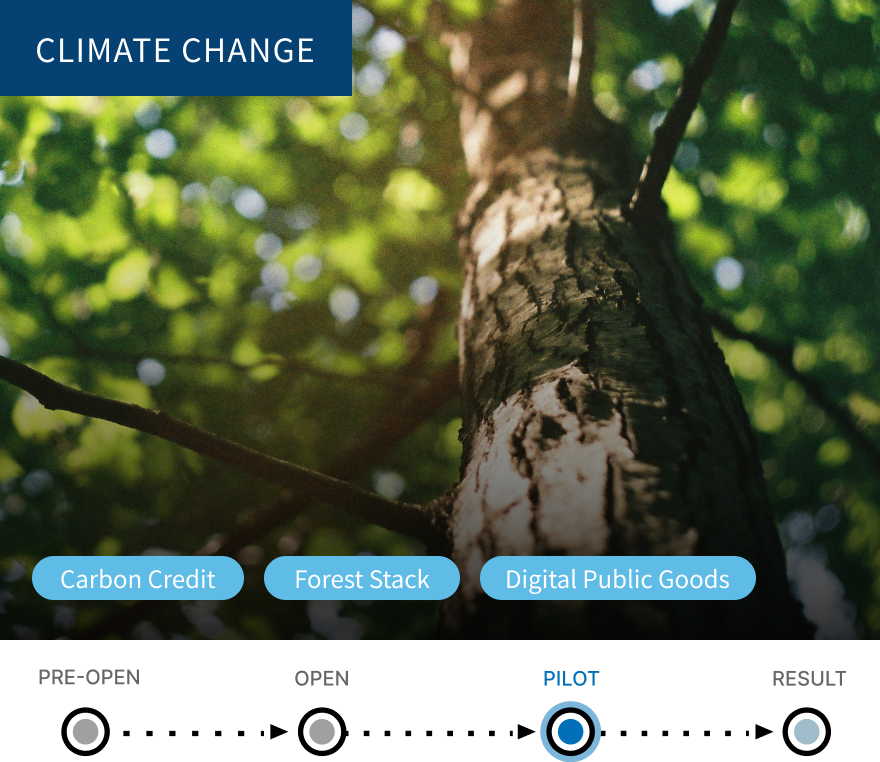
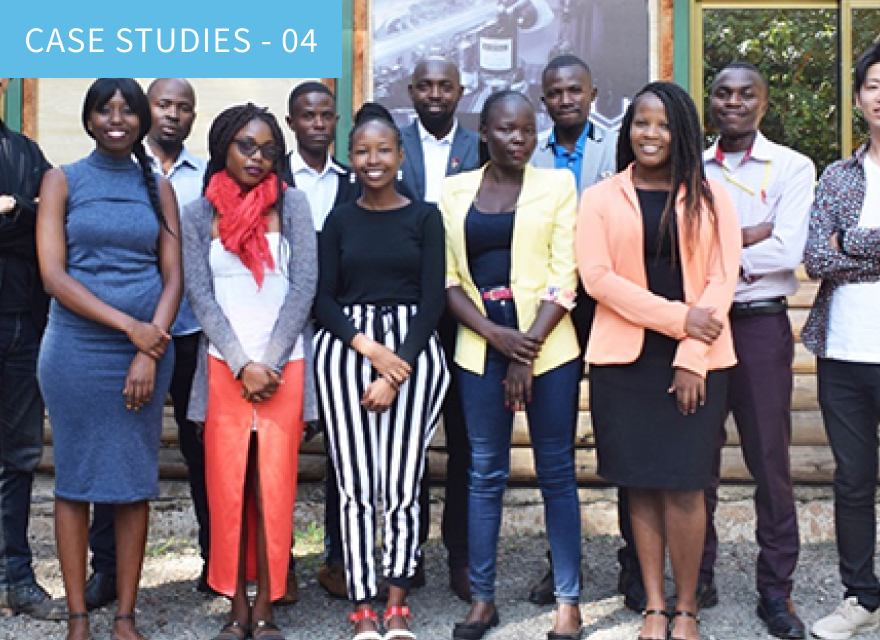
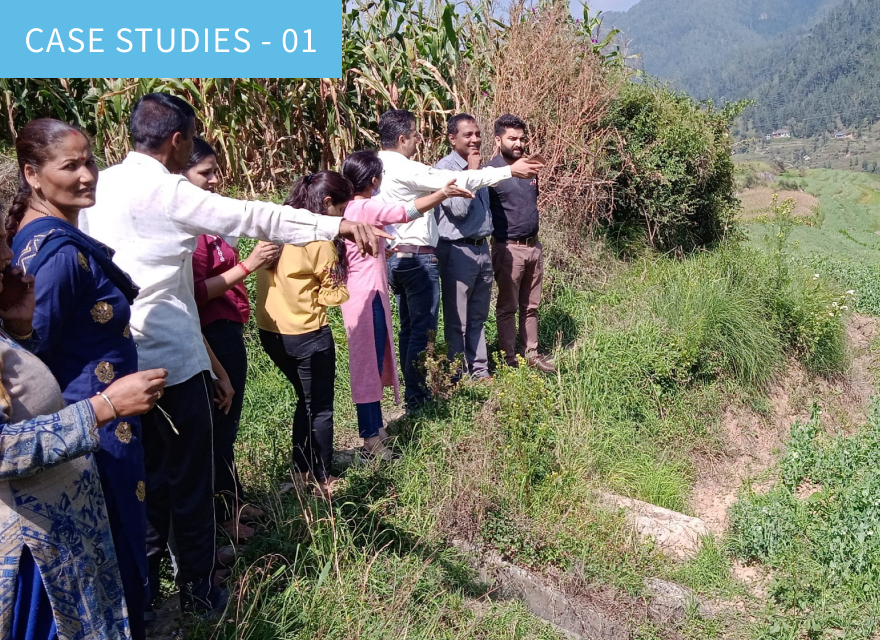

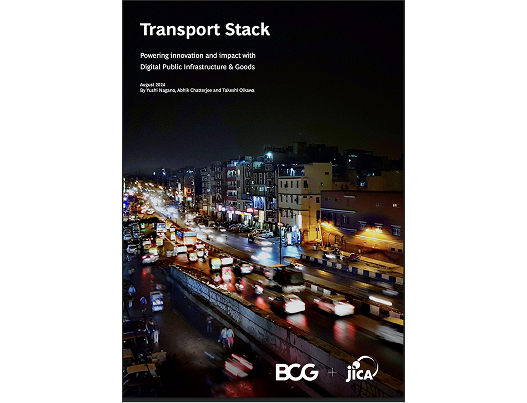

scroll